35 Ways to Earn up to 11% on Your Money
Since the Great Recession, many investors' portfolios have been a tale of feast and famine.


Profit and prosper with the best of Kiplinger's advice on investing, taxes, retirement, personal finance and much more. Delivered daily. Enter your email in the box and click Sign Me Up.
You are now subscribed
Your newsletter sign-up was successful
Want to add more newsletters?

Delivered daily
Kiplinger Today
Profit and prosper with the best of Kiplinger's advice on investing, taxes, retirement, personal finance and much more delivered daily. Smart money moves start here.

Sent five days a week
Kiplinger A Step Ahead
Get practical help to make better financial decisions in your everyday life, from spending to savings on top deals.

Delivered daily
Kiplinger Closing Bell
Get today's biggest financial and investing headlines delivered to your inbox every day the U.S. stock market is open.

Sent twice a week
Kiplinger Adviser Intel
Financial pros across the country share best practices and fresh tactics to preserve and grow your wealth.

Delivered weekly
Kiplinger Tax Tips
Trim your federal and state tax bills with practical tax-planning and tax-cutting strategies.

Sent twice a week
Kiplinger Retirement Tips
Your twice-a-week guide to planning and enjoying a financially secure and richly rewarding retirement

Sent bimonthly.
Kiplinger Adviser Angle
Insights for advisers, wealth managers and other financial professionals.

Sent twice a week
Kiplinger Investing Weekly
Your twice-a-week roundup of promising stocks, funds, companies and industries you should consider, ones you should avoid, and why.

Sent weekly for six weeks
Kiplinger Invest for Retirement
Your step-by-step six-part series on how to invest for retirement, from devising a successful strategy to exactly which investments to choose.
Since the Great Recession, many investors' portfolios have been a tale of feast and famine. Stocks have racked up hefty gains, while the lowest interest rates in a generation have meant paltry returns on bonds, cash accounts and other fixed-income investments.
Now, income investors are facing a sea change. With the U.S. economy rolling along, the Federal Reserve has pushed its benchmark short-term interest rate to a range of 1.5% to 1.75%—the highest since 2008—and has signaled more hikes to come. Longer-term rates have also risen, though modestly so far. Although the prospect of earning higher yields will appeal to many investors, rising rates also pose a threat in the near term: They devalue older, lower-yielding bonds, as well as some stocks and other securities that rise and fall largely in tandem with the fixed-income market. Inflation, which is starting to creep upward, is another threat.
All of this means investors may need to rethink what they want the income portion of their nest egg to look like and how much risk they're willing to take compared with the potential reward. To that end, there's one basic concept every bond investor needs to know: duration. It's roughly related to a bond's maturity, or the average maturity of the bonds in a fund's portfolio. Duration tells you approximately how much the price of a bond, or a fund's share price, would fall or rise depending on the direction of interest rates. A duration of 5.5, for example, implies a fund's share price would fall roughly 5.5% if market rates rose one percentage point over a 12-month period. High durations often go hand-in-hand with higher yields, but also with greater potential share price volatility. It's the trade-off every fixed-income investor has to make.
Prices, yields and related data are as of April 20.
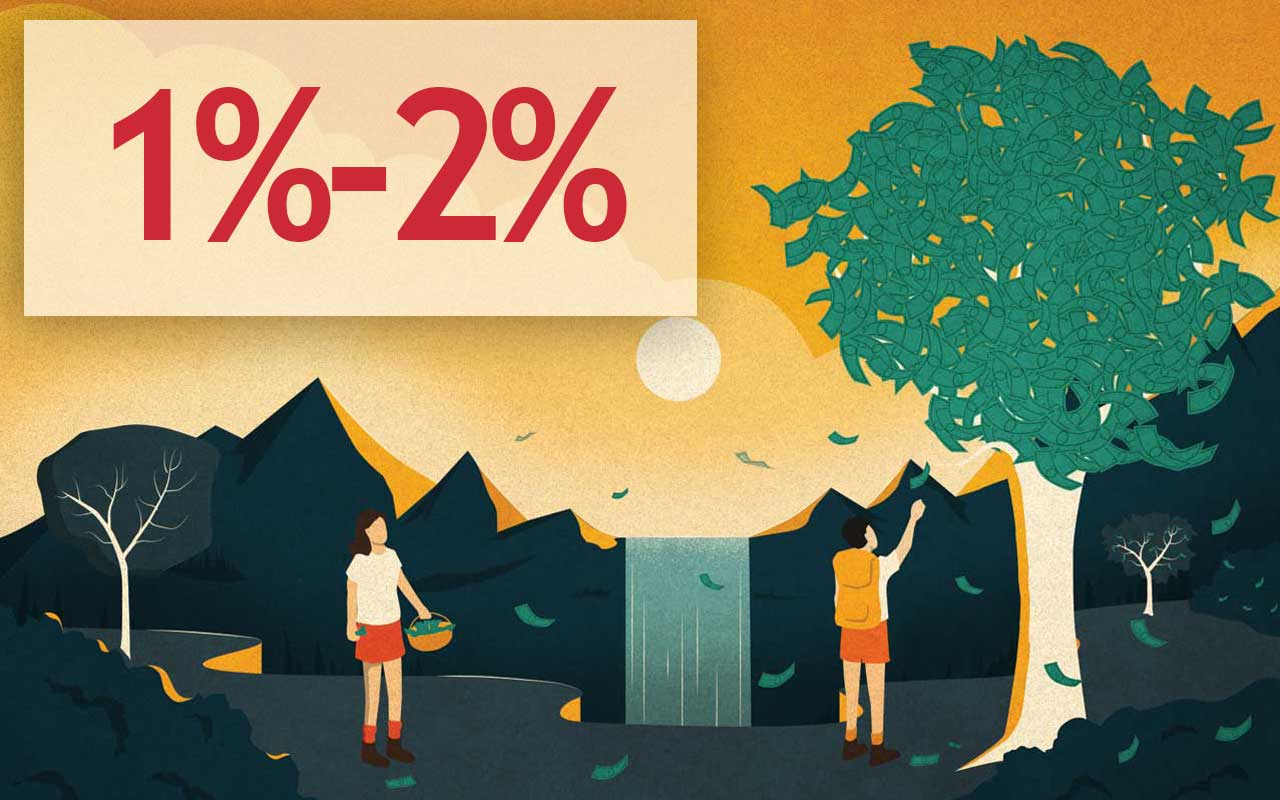
Short-Term Accounts
Thanks to the Fed, cash is no longer trash. Yields on short-term fixed-income accounts and securities—typically meaning those maturing in one year or less—have tracked the Fed's key rate and now are mostly between 1% and 2%. And note: If the Fed sticks with its rate-hike plan, yields on bank savings deposits, money market funds, U.S. Treasury bills and other short-term accounts could be 1.25 points higher by the end of 2019 than they are today.
- The risks: There is little to no risk of principal loss on most short-term accounts. The main risk is inflation. The annualized U.S. inflation rate is about 2%, and until yields rise above that mark, cash in these accounts is losing purchasing power.
- How to invest: One of the most popular short-term savings options is a money market deposit account at a bank. The average national yield is a mere 0.18%, but some banks recently paid as much as 1.8% on such accounts, says Greg McBride, chief financial analyst at Bankrate.com. So it pays to shop around. Federal deposit insurance is identical at every bank: It insures deposits up to $250,000 per depositor, per institution.
If you're willing to lock up your cash for one year, you can find banks paying as much as 2.2% on one-year certificates of deposit. But McBride says most savers are smart to stay liquid in money market accounts: "In a rising-rate environment, you want the ability to reinvest on a regular basis" at higher yields.
Banks' chief rivals for short-term savings are money market mutual funds. The average money fund yield was recently 1.3%, but some are paying significantly more. We like Vanguard Prime Money Market (symbol VMMXX, yield 1.8%). Though not federally insured, money funds are low-risk.
Finally, a super-safe option is U.S. Treasury bills. Six-month T-bills recently yielded 2%. You can buy them directly from Uncle Sam at www.treasurydirect.gov. Residents of high-income-tax states will appreciate that states don't tax U.S. Treasury interest income.
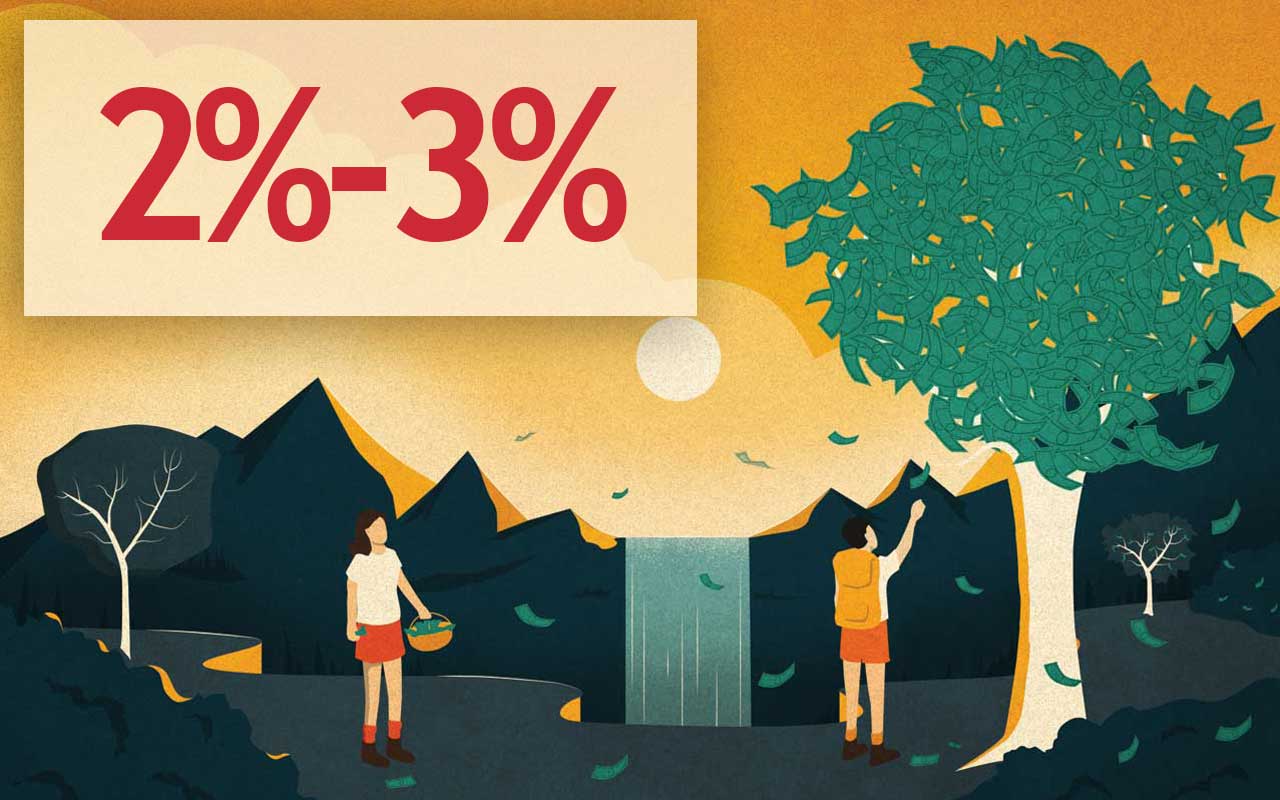
Municipal Bonds
The main appeal of bonds issued by state and local governments is that Uncle Sam doesn't tax the interest. But that break became less valuable to individual investors, banks and companies with the tax cuts Congress passed last year. A married couple with $200,000 in taxable income and filing jointly will have a 24% marginal tax rate in 2018, down from 28% in 2017. So a 3% tax-free muni yield now is worth the same as a taxable yield of 3.9% to that couple, down from 4.2% in 2017.
The pressure of the tax cut and the rise in interest rates overall this year have pushed prices on muni bonds down and yields, which move in the opposite direction, higher. The yield on the Bloomberg index of triple-A-rated 10-year muni issues was 2.5% recently, up from 1.8% last September.
- The risks: Despite some high-profile municipal bond defaults, such as the 1994 default by California's Orange County, the vast majority of state and local bond issuers repay their debts as promised. But the number of muni issuers facing financial woes is likely to increase, says Matt Fabian, a partner at research firm Municipal Market Analytics. Slow economic growth in many parts of the U.S. could crimp tax revenue—at the same time that state and local governments are spending more for Medicaid, public pensions and infrastructure. That means "muni investors should focus on better-quality bonds," Fabian says.
- How to invest: Many financial advisers still favor muni bonds as a core fixed-income holding for their wealthiest clients, especially in high-tax states such as California and New York. That's because in addition to the federal tax exemption, you typically get a state tax exemption on bonds issued in the state where you live, notes Dale Yahnke, of financial advisory firm Dowling & Yahnke. As a first step, see if muni yields are a better deal than taxable bond yields in your federal and state tax brackets. Then decide how much volatility you can take. If you're investing via mutual funds, weigh yield against duration risk.
Among funds that invest in munis nationwide, Fidelity Intermediate Municipal Income (FLTMX, 2.2%) has a track record of providing decent yields with below-average expenses and below-average volatility. It's a member of the Kiplinger 25, the list of our favorite no-load mutual funds. The fund has a duration of 4.9. Investors who want to focus on high-quality munis might consider SPDR Nuveen Bloomberg Barclays Municipal (TFI, $48, 2.5%). The exchange-traded fund, with a duration of 7.0, is designed to track the Bloomberg Barclays Muni Managed Money index. It owns mostly bonds rated double-A or better. Because it's an index fund, the portfolio is skewed toward large debt issuers, such as California and New York, which are weighted more heavily in the index. Another index fund worth a look is Vanguard Tax-Exempt Bond Fund ETF (VTEB, $51, 2.5%). About 75% of its bonds are rated double-A or better. The fund, launched in 2015, has a duration of 5.7 and an annual management fee of just 0.09% of assets—lower than all of its peer funds.
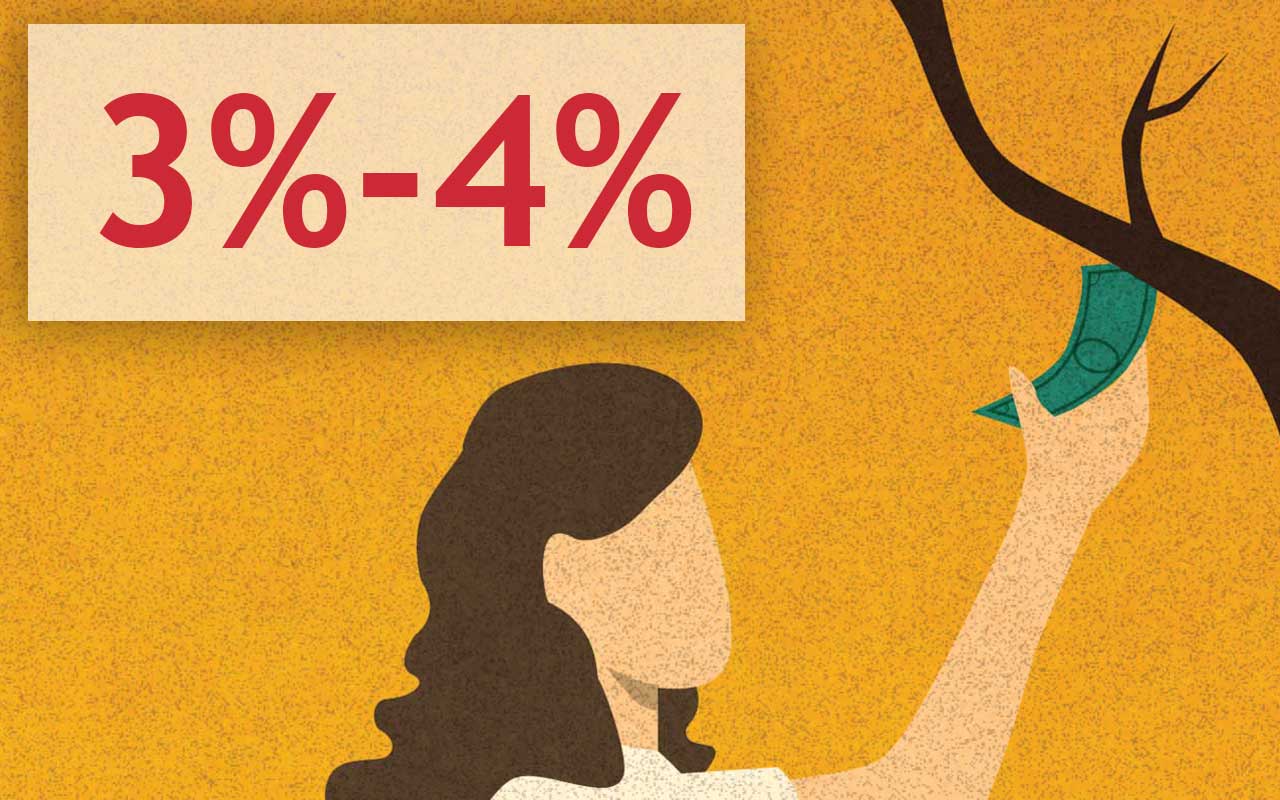
Investment-Grade Bonds
High-quality bonds form the base of a fixed-income portfolio. Issuers include major governments, government agencies and companies that are the strongest financially. The bonds have low credit risk; there's little chance that the issuers would be unable to pay interest or principal as promised.
For most of the period from 2010 through mid 2016, long-term interest rates fell while the Fed kept its benchmark short-term rate near zero. With the Fed now hiking, the bellwether 10-year Treasury note yield has risen from 1.4% in mid 2016 to nearly 3% recently, lifting yields on other high-quality bonds.
- The risks: A key determinant of long-term bond yields is the inflation rate, because inflation erodes the value of fixed-income yields. If investors begin to fear that inflation will rise, they're likely to demand higher yields on new bonds—depressing the value of existing bonds.
- How to invest: Vanguard Total Bond Market ETF (BND, $79, 3.0%) is a solid choice for a diversified bond holding, says Miriam Sjoblom, a bond-fund analyst at Morningstar. The portfolio tracks the Bloomberg Barclays U.S. Aggregate Bond index of high-quality bonds, which include Treasury, corporate and mortgage issues. The fund's annual management cost is a mere 0.05% of assets. Its duration is 6.1.
For investors who prefer actively managed funds, Dodge & Cox Income (DODIX, 3.0%) has a "thoughtful long-term approach to investing and an attractive price tag," says Morningstar analyst Sarah Bush. The management cost is 0.4%, compared with an average of 0.8% for similar funds, and the portfolio duration is 4.2. Another actively managed pick: DoubleLine Total Return Bond (DLTNX, 3.4%), a Kip 25 member. Most of the bonds in the portfolio are mortgage-backed securities, the specialty of DoubleLine founder Jeffrey Gundlach. The fund's duration is 3.8.
Cullen Roche, head of advisory firm Orcam Financial Group, recommends a small stake in the longest-term U.S. Treasury bonds, using iShares 20+ Year Treasury Bond ETF (TLT, $118, 3.0%). Such long-term bonds carry high volatility risk (the ETF's duration is 17.5), but Roche views them as insurance against a geopolitical or global economic crisis. Long-term Treasuries have been the asset investors flock to in times of great fear. "There's no reason to think that has changed," he says.
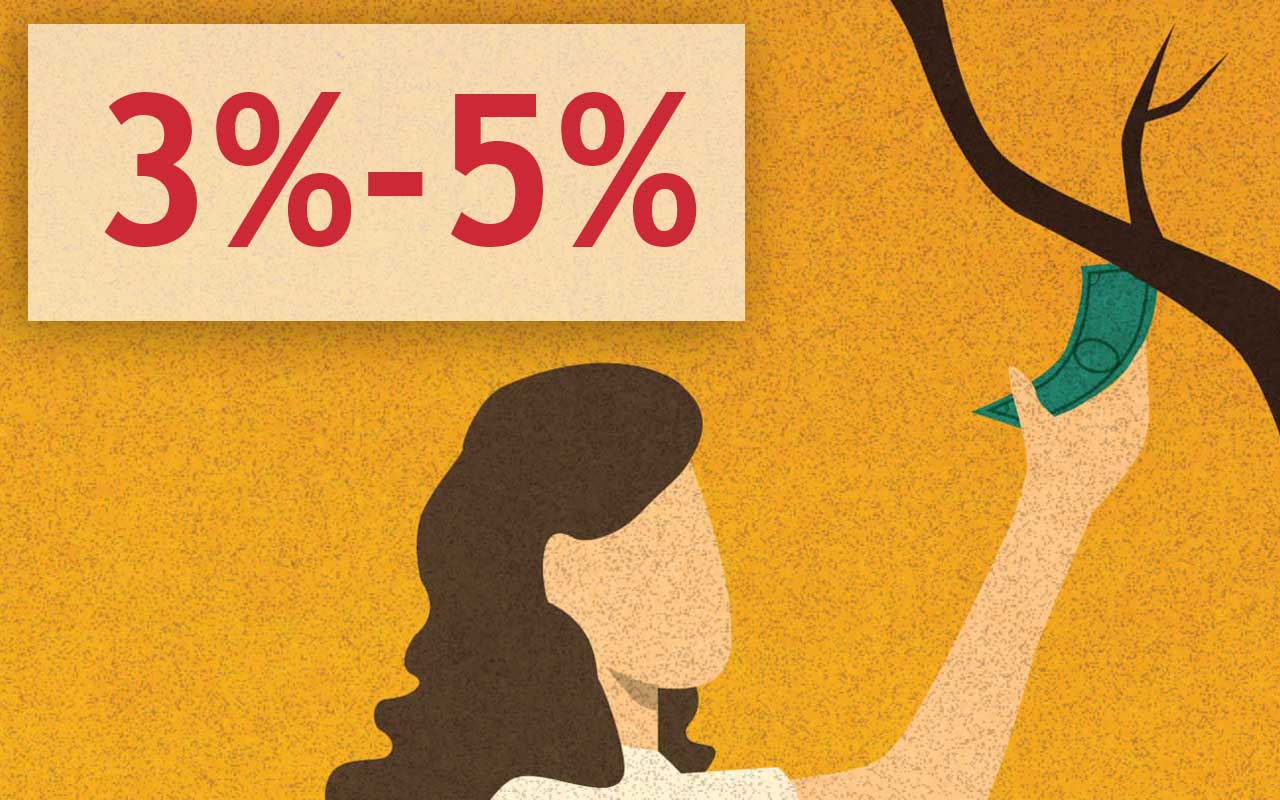
Foreign Bonds
Foreign bonds have been a poor option over the past five years. The average annualized five-year total return on world bond funds is a paltry 1.2%. That partly reflects government bond yields in Japan and Western Europe that are far below U.S. yields, as rates there remain low amid slower economic growth. A 10-year U.S. Treasury note recently yielded nearly 3%. By contrast, 10-year government bonds yield a mere 0.06% in Japan, 0.6% in Germany and 1.3% in Spain.
But for income-focused U.S. investors willing to take some risk, emerging-markets bonds offer generous yields—typically between 4% and 5%. They could log price gains if global growth continues to bolster emerging economies. Our favorite foreign-bond strategy: Own a mix of issues in both developed and emerging markets.
- The risks: American investors in U.S. bonds can be hurt by fluctuating market interest rates and by defaults by bond issuers. Foreign bonds issued in foreign currencies face those risks, plus a third: swings in the value of the dollar compared with other currencies. In 2017, the dollar fell against most currencies, which boosted returns on many foreign bond funds (when the buck weakens, investments in foreign currencies translate into more dollars). A sudden rally in the dollar would have the opposite effect.
- How to invest: We like T. Rowe Price Global Multi-Sector Bond (PRSNX, 3.4%), with a duration of 5.7. It holds government and corporate bonds in emerging and developed markets (including the U.S.). Its diversified mix recently included debt from issuers such as India, Thailand and Turkey. Dodge & Cox Global Bond (DODLX, 3.8%) has a relatively short duration of 3.3, with holdings split about evenly between U.S. bonds and foreign bonds. Over the past three years, both funds have gained 3.6% annualized, compared with 2.5% for the average world bond fund.
Among funds that focus solely on emerging markets, Fidelity New Markets Income (FNMIX, 4.6%), a Kip 25 member, remains a standout. The fund, with a duration of 6.6, limits currency risk by investing mainly in foreign bonds issued in dollars.
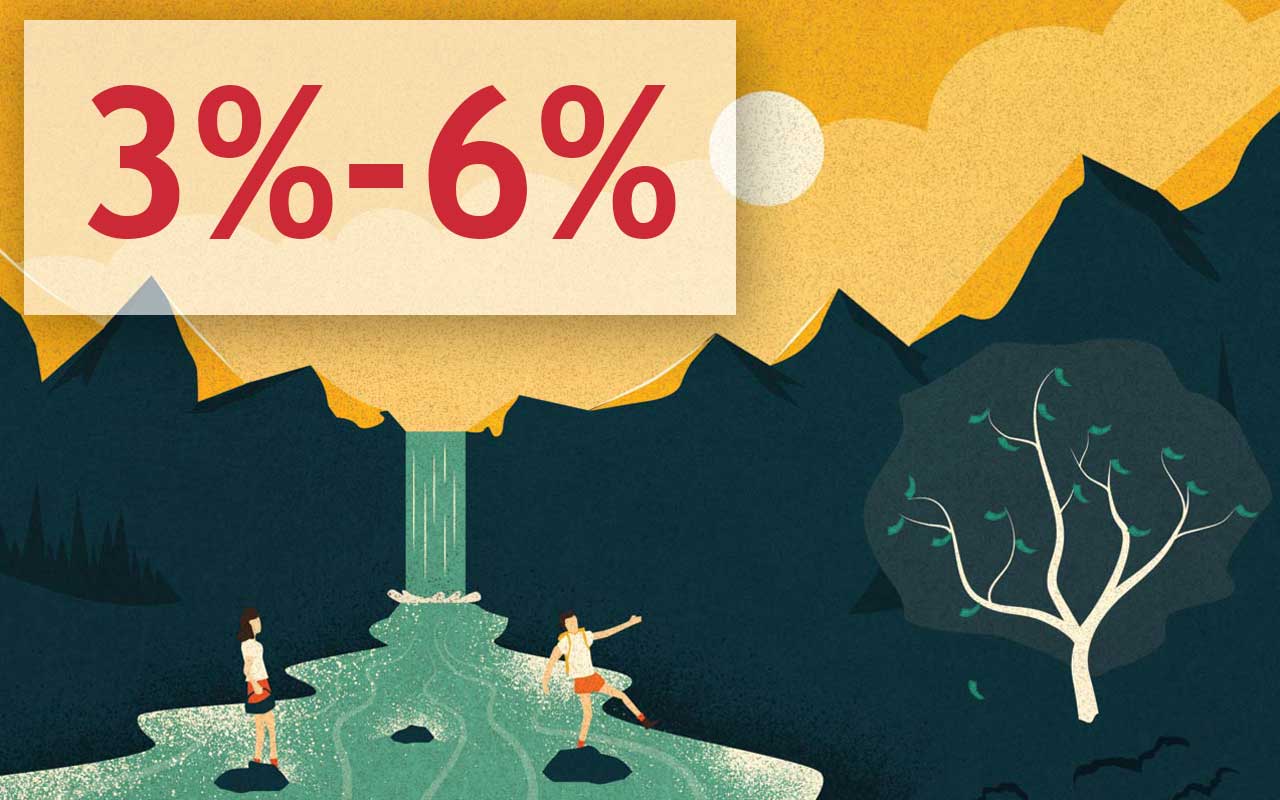
High-Yield Bonds
Income-hungry investors have long favored high-yield "junk" bonds for the most speculative chunk of their portfolios. Junk securities are any bonds issued by below-investment-grade companies. Because they pose a greater risk of default than high-quality bonds, junk issues must yield more to attract buyers. Lately, junk yields have been pushed higher as investors weigh risk against reward in an aging economic cycle. The average junk-bond yield has risen from a low of 5.4% in 2017 to 6.1% recently, compared with the 3%-to-4% yields of high-quality bonds.
- The risks: History shows that many investors flee junk bonds when a recession hits, and bond prices can temporarily collapse. Some junk funds lost more than half of their value in the recession of 2007-09 before rebounding.
- How to invest: If you're worried that the economy will get rocky, stick with a fund that focuses on higher-quality junk bonds. A fund that fits the bill is Vanguard High Yield Corporate (VWEHX, 5.4%), a Kip 25 member. Over the past 10 years, the fund has gained 6.7% a year, on average, compared with 6.5% for the average junk fund. Its current duration is 4.2. Another long-term winner: Fidelity High Income (SPHIX, 5.8%), a fund known for its adept bargain-hunting under manager Fred Hoff. Its 10-year average annual gain is 7.3%, and the current duration is 3.6.
- Loomis Sayles Bond Fund (LSBRX, 3.3%) isn't technically a junk-bond fund, but longtime manager Dan Fuss has excelled as a bond picker, particularly in high-yield issues. The fund recently had 30% of its $13 billion in assets in junk bonds. Overall, Fuss is very cautious: He had 33% of assets in cash, the highest percentage ever, and the fund's duration of 3.3 is the lowest ever. Fuss fears that the economy and markets could be at a turning point, especially if a trade war takes hold. Until the risks are clearer, he says, it makes sense to keep a reserve of dry powder.
But over the long haul, the bonds' high yields have more than compensated for issuers that go bust. Over the past 15 years, the average junk bond fund has returned an annualized 6.9% in interest and principal gains, compared with 3.9% for an index of high-quality U.S. bonds.
With the Fed pushing short-term rates higher, floating-rate bank loan funds are worth a look. These funds buy short-term loans that are mostly rated below investment-grade and carry interest rates that adjust higher with market rates. We prefer Fidelity Floating Rate High Income (FFRHX, 3.6%), which takes a cautious approach and skews toward higher-quality debt.
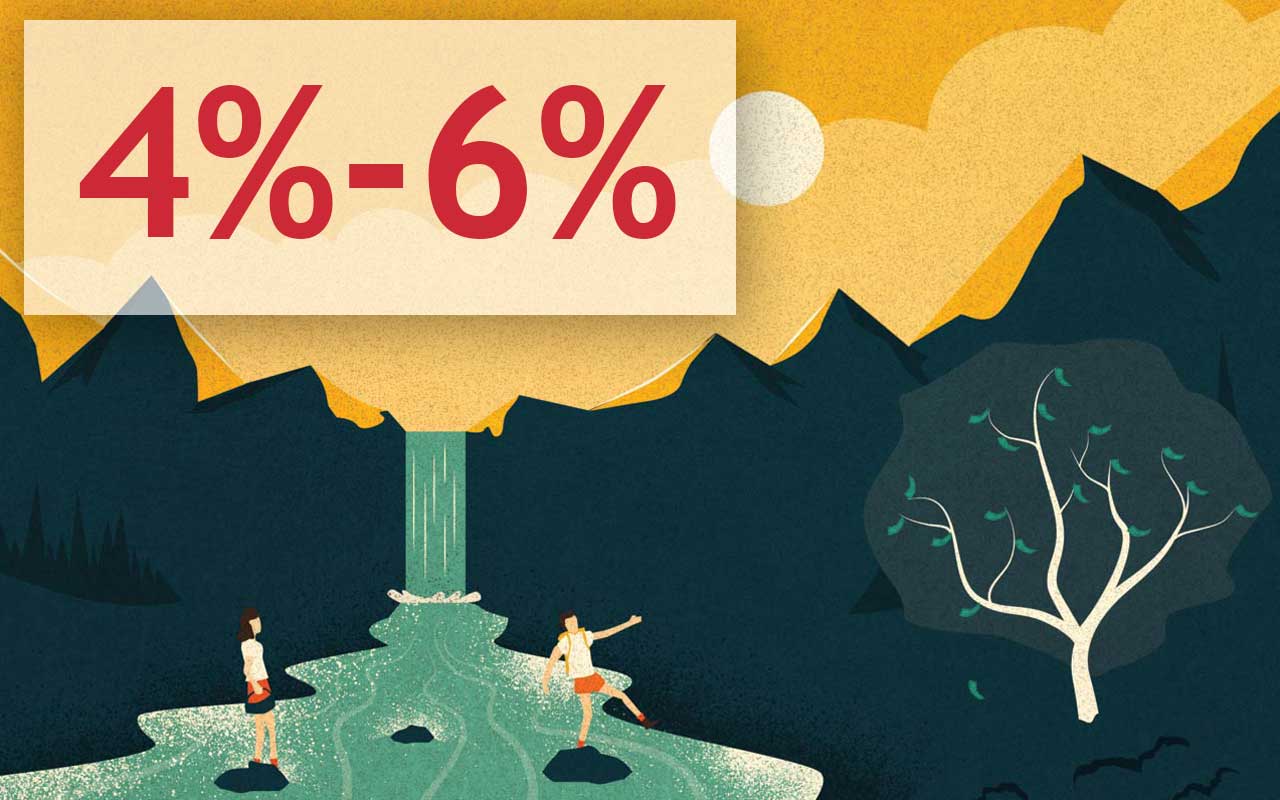
Dividend Stocks
Bonds aren't the only investments that generate regular income. You might want to consider select high-income stocks. Preferred stocks are a way for companies to raise equity capital instead of taking on debt by selling bonds. Shareholders in preferred stocks have a higher legal claim to a company's assets and earnings than do its common shareholders, and preferred dividends take precedence over a company's payment of common dividends. Preferreds are typically issued with fixed dividends, so the securities tend to act as bonds do, fluctuating in price with market interest rates.
The common stocks of electric, gas and water utilities have long been favorites of income hunters. As with other income vehicles, they face more risk of price declines as interest rates rise. But if income is your priority, focus on the prospects for a consistent payout rather than on stock-price volatility (see Steady Income from Volatile Sources). Telecom giants are also fertile hunting ground for payouts you can depend on.
- The risks: Prices for these bond proxies often suffer when interest rates move up. Early this year, rising rates drove many preferreds lower—though not drastically. But the Dow Jones utility stock index plunged 17% from mid November 2017 to early February before recovering somewhat. That has driven yields up, with electric utility yields now mostly ranging from 3% to 6%. The dividends of select telecom stocks are essentially safe, but given debt levels and network spending needs, the payout growth rate is low.
- How to invest: Exchange-traded funds that own a mix of preferred stocks are an easy way to buy in. Three names worth investigating: iShares U.S. Preferred (PFF, $37, 5.3%), PowerShares Preferred (PGX, $14, 5.7%) and VanEck Vectors Preferred Securities ex-Financials (PFXF, $19, 6.3%). Utilities that should deliver consistent payouts include American Electric Power (AEP, $68, 3.6%) and Southern Co. (SO, $45, 5.1%). AT&T (T, $35) and Kiplinger Dividend 15 member Verizon Communications (VZ, $48) yield 5.8% and 4.9%, respectively. For the past 10 years, AT&T has raised its quarterly dividend by 1 cent every year, to the current rate of 50 cents per share. Verizon's payout has risen by 1.25 cents a year for the past few years, to 59 cents per share per quarter.
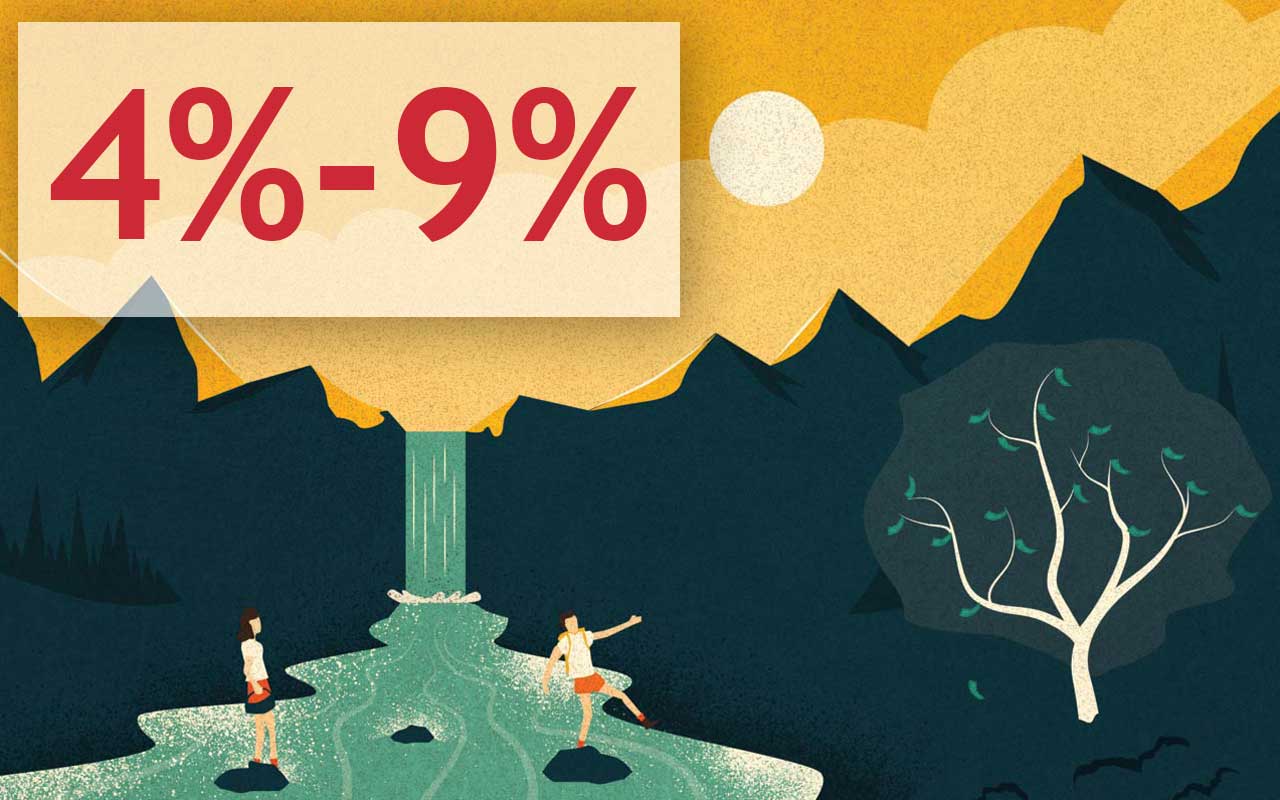
Real Estate Investment Trusts
REITs were on fire coming out of the Great Recession, as the recovering economy and rock-bottom interest rates boosted prices of the commercial, industrial and residential real estate that the companies own and manage. But the jump in longer-term interest rates early this year hit REITs hard. The average real estate mutual fund is down 8.3% in 2018. That makes some REITs compelling bargains, with yields in the range of 4% to 9%.
- The risks: Higher interest rates create competition for REITs' dividend payments and make it more expensive for REIT managers to borrow to buy new properties. But if the backdrop for rising rates is a strong economy, that should underpin property rents and thus REIT income and dividends. And if inflation rises with the economy, real estate's role as an inflation hedge could lure investors.The prospects for REITs vary depending on the markets in which they operate, so it pays to be choosy—or well diversified. Some retail-focused REITs are reeling from the shift away from brick-and-mortar sales to online shopping, for example.
- How to invest: The simplest, lowest-cost route is to own an index fund that holds a broadly diversified portfolio of REITs. Vanguard Real Estate Index ETF (VNQ, $74, 3.8%), like its mutual fund cousin (VGSIX), owns shares of 185 REITs. The ETF has gained an average of 5.6% a year over the past 10 years, beating the 5.2% return of the average real estate fund. Fidelity Real Estate Income (FRIFX, 4.4%) mixes REIT shares with real estate-related corporate bonds, preferred shares and mortgage-backed securities. The fund has gained an annualized 7.8% over the past 10 years.
Among individual REITs, Realty Income (O, $50, 5.3%) is one of the Kip Dividend 15. Although most of Realty's 5,200 properties are retail stores, its occupancy rate is 98%. The firm has shied away from malls, focusing instead on free-standing buildings that house tenants such as drugstores, convenience stores and fitness facilities. We also like Monmouth Real Estate Investment (MNR, $15, 4.5%). It's an e-commerce play: 60% of revenue comes from properties occupied by package delivery titan FedEx.
Investors willing to accept higher risk to get higher yields might consider REITs that invest in commercial or residential mortgages. One idea: iShares Mortgage Real Estate Capped (REM, $42, 8.5%), which owns stakes in some of the biggest mortgage REIT funds, including Annaly Capital Management and Starwood Property Trust.

Closed-End Funds
Traditional mutual funds and exchange-traded funds are "open end" because there is theoretically no limit to the number of shares sponsors can issue to satisfy investor demand. By contrast, closed-end funds have a set number of shares outstanding at any moment. CEFs raise capital by going public via an initial public offering. Fund managers then use the money raised to buy stocks, bonds or other investments. If managers are successful, over time, the value of assets in the fund should grow and the shares' value should rise. But the day-to-day price of CEF shares is a function of investor demand—which means the share price at any time could trade above or below the per-share value of the assets. For many investors, the attraction is buying when shares trade below the value of the assets—that is, at a discount.
- The risks: Many CEFs borrow money to boost their investment buying power. If the investments bomb, that debt can compound losses, sending a fund's share price tumbling. That's one reason CEFs require a lot of investigating, says John Cole Scott, chief investment officer at Closed End Fund Advisors, a specialist in the funds. "You've got to understand what you own," including how much borrowing is involved, he says.
- How to invest: Bond CEFs are popular because they often sport high yields to attract investors. One idea worth investigating: DoubleLine Income Solutions (DSL, $20, 8.9%). The fund can invest anywhere in the world in search of high income. Recently, emerging-markets bonds were 44% of assets and corporate junk bonds were 24%. The fund's duration is 5.4, and shares recently traded at a 5% discount. Borrowed money as a percentage of investment assets—an important yardstick known as the leverage ratio—was recently 29%, modestly above the average 25% for taxable closed-end bond funds.
Another go-anywhere fund to consider is BlackRock Multi-Sector Income Trust (BIT, $17, 8.4%), which has a relatively low duration of 2.8 and a leverage ratio of 41%. The shares were recently trading at a 12% discount to net asset value.
Stephen Janachowski, head of financial advisory firm Brouwer & Janachowski, suggests another CEF-related idea: RiverNorth/DoubleLine Strategic Income Fund (RNDLX, 4.6%). This conventional mutual fund recently had half its assets invested in shares of individual CEFs and the rest in a mix of bonds. The fund, with a duration of 4.6, seeks to exploit opportunities in CEFs that are trading at discounts.

Master Limited Partnerships
MLPs, often spin-offs from energy companies, operate large parts of the nation's energy infrastructure, such as oil pipelines, natural gas processing facilities and storage depots. Because they pass most of their cash flow through to investors, they're popular with income seekers. But MLP shares plunged in March after a tax ruling by the Federal Energy Regulatory Commission raised fears that some pipeline firms' cash flows could be crimped.
- The risks: Analysts say the FERC ruling will have little or no effect on many MLPs. But the move was another blow to the sector, which suffered with the crash in oil and natural gas prices from mid 2014 to early 2016. JPMorgan Chase analysts say that even though rising U.S. oil and gas production is good news for energy-infrastructure firms, fierce competition and the inability of many MLPs to take on more debt could make growth in cash flow and shareholder payouts more difficult for some players. Higher interest rates are also a headwind. And because of the tax issues with MLPs, it's smart to consult a tax adviser before buying.
- How to invest: Despite the risks, with MLP share prices beaten down to their lowest levels in at least two years, investors can find high-yielding bargains now. Goldman Sachs recommends Western Gas Partners (WES, $46, 7.9%), which transports and treats natural gas and oil for Anadarko Petroleum and other energy giants. Western, which operates from the Rocky Mountains to Pennsylvania, is on track to generate payouts of $3.83 per share this year and $4.07 in 2019, Goldman says. JPMorgan likes Andeavor Logistics (ANDX, $48, 8.4%), which operates oil and gas pipelines, processing facilities, and storage centers in the western and mid-continent regions. The MLP is expected to pay out $3.90 per share this year and $4.15 in 2019.
MLPs on brokerage firm Stifel's buy list include Green Plains Partners (GPP, $18, 11.0%), which owns and operates storage tanks, terminals and other facilities for Green Plains Inc., the world's second-largest owner of ethanol production plants. Green Plains Partners is a play on soaring export demand for grain-based ethanol to blend with gasoline in energy-hungry foreign markets, including China, India and Brazil. Stifel projects Green Plains Partners' annual payout to investors to rise from $1.82 per share in 2017 to $1.98 in 2018 and $2.09 in 2019.
Profit and prosper with the best of Kiplinger's advice on investing, taxes, retirement, personal finance and much more. Delivered daily. Enter your email in the box and click Sign Me Up.

-
 Nasdaq Leads a Rocky Risk-On Rally: Stock Market Today
Nasdaq Leads a Rocky Risk-On Rally: Stock Market TodayAnother worrying bout of late-session weakness couldn't take down the main equity indexes on Wednesday.
-
 Quiz: Do You Know How to Avoid the "Medigap Trap?"
Quiz: Do You Know How to Avoid the "Medigap Trap?"Quiz Test your basic knowledge of the "Medigap Trap" in our quick quiz.
-
 5 Top Tax-Efficient Mutual Funds for Smarter Investing
5 Top Tax-Efficient Mutual Funds for Smarter InvestingMutual funds are many things, but "tax-friendly" usually isn't one of them. These are the exceptions.
-
 Big Change Coming to the Federal Reserve
Big Change Coming to the Federal ReserveThe Lette A new chairman of the Federal Reserve has been named. What will this mean for the economy?
-
 Job Growth Sizzled to Start the Year. Here's Why It's Unlikely to Impact Interest Rates
Job Growth Sizzled to Start the Year. Here's Why It's Unlikely to Impact Interest RatesThe January jobs report came in much stronger than expected and the unemployment rate ticked lower to start 2026, easing worries about a slowing labor market.
-
 Why the Next Fed Chair Decision May Be the Most Consequential in Decades
Why the Next Fed Chair Decision May Be the Most Consequential in DecadesKevin Warsh, Trump's Federal Reserve chair nominee, faces a delicate balancing act, both political and economic.
-
 The New Fed Chair Was Announced: What You Need to Know
The New Fed Chair Was Announced: What You Need to KnowPresident Donald Trump announced Kevin Warsh as his selection for the next chair of the Federal Reserve, who will replace Jerome Powell.
-
 January Fed Meeting: Updates and Commentary
January Fed Meeting: Updates and CommentaryThe January Fed meeting marked the first central bank gathering of 2026, with Fed Chair Powell & Co. voting to keep interest rates unchanged.
-
 The December CPI Report Is Out. Here's What It Means for the Fed's Next Move
The December CPI Report Is Out. Here's What It Means for the Fed's Next MoveThe December CPI report came in lighter than expected, but housing costs remain an overhang.
-
 How Worried Should Investors Be About a Jerome Powell Investigation?
How Worried Should Investors Be About a Jerome Powell Investigation?The Justice Department served subpoenas on the Fed about a project to remodel the central bank's historic buildings.
-
 The December Jobs Report Is Out. Here's What It Means for the Next Fed Meeting
The December Jobs Report Is Out. Here's What It Means for the Next Fed MeetingThe December jobs report signaled a sluggish labor market, but it's not weak enough for the Fed to cut rates later this month.
